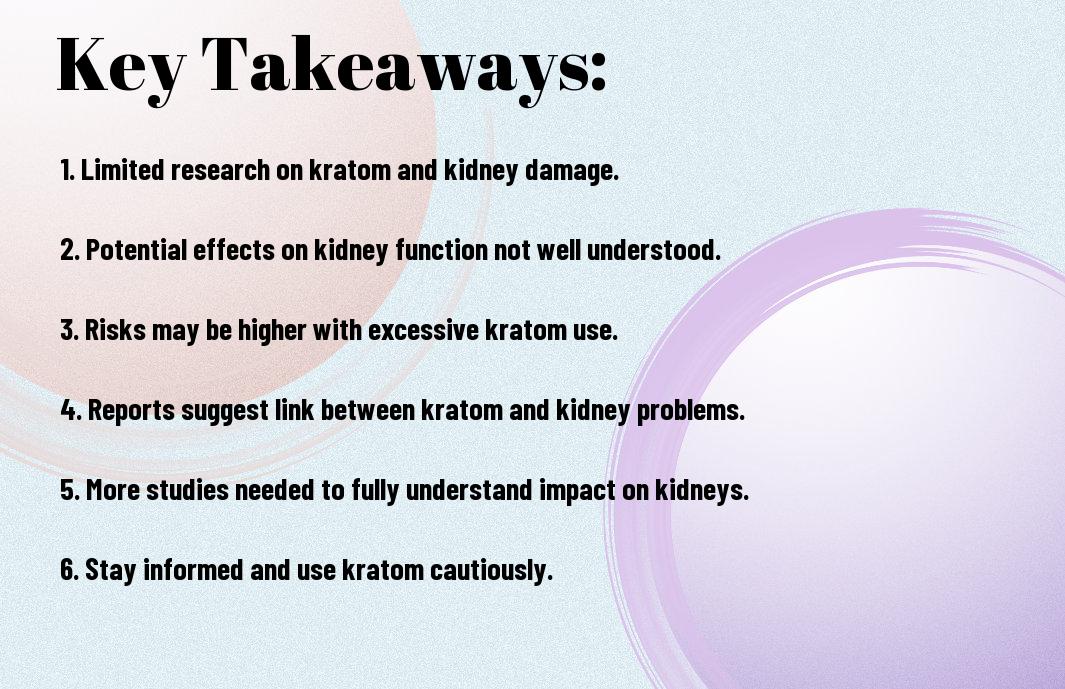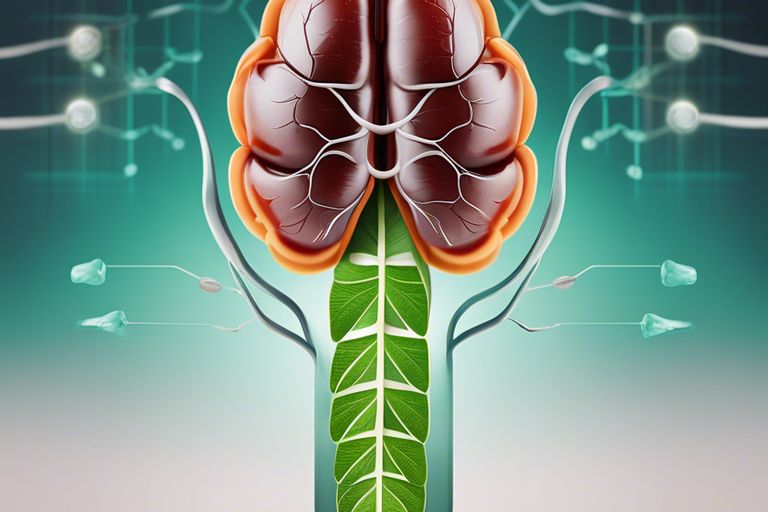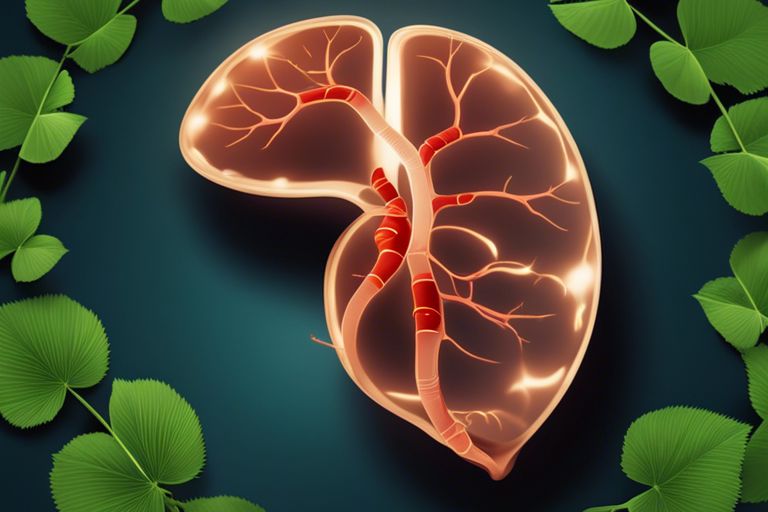It’s crucial to understand the potential impact of kratom on your kidneys. Exploring the question “Can Kratom Cause Kidney Damage?” requires a deep look into the facts surrounding this controversial substance. To uncover the truth behind this issue, research into our article on What Does Kratom Do to Your Kidneys? and equip yourself with the knowledge needed to make informed decisions regarding kratom consumption.
Key Takeaways:
- Kratom may potentially cause kidney damage in certain individuals: While kratom is generally considered safe when used responsibly, there have been reported cases linking kratom use to kidney damage. It’s important to be cautious and monitor your health when using kratom.
- Factors contributing to kidney damage: The risk of kidney damage from kratom can be influenced by various factors such as the quality of the kratom product, dosage, frequency of use, individual health conditions, and potential interactions with other substances.
- Consult a healthcare professional: It’s crucial to consult with a healthcare provider before using kratom, especially if you have pre-existing kidney issues or are taking medications that may interact with kratom. Regular check-ups can help monitor your kidney health and identify any potential concerns early on.

The Rise of Kratom
A Brief History of Kratom Use
History
Historically, kratom has been used for centuries in Southeast Asia for its stimulant and pain-relieving properties. It was commonly chewed by workers to combat fatigue and improve productivity. Additionally, it was brewed as a tea or used in traditional medicine practices to manage various ailments.
Growing Popularity and Availability
History shows that kratom’s popularity has soared in Western countries in recent years due to its touted benefits for pain management, anxiety relief, and opioid withdrawal symptoms. As a result, the availability of kratom products, including powders, capsules, and extracts, has significantly increased, with numerous online vendors and smoke shops offering a wide range of options.
To meet the demand, kratom’s popularity has led to concerns about quality control and regulations within the industry. Without standardized production processes and oversight, there is a risk of inconsistency in product potency and purity, potentially posing health risks to consumers.

Kratom’s Effects on the Body
Mechanisms of Action
An understanding of how kratom interacts with the body is necessary in evaluating its potential effects on the kidneys. Kratom contains active compounds (such as mitragynine and 7-hydroxymitragynine) that target opioid receptors in the brain, producing pain relief and euphoria. These alkaloids also interact with other receptors in the body, leading to various effects like increased energy and alertness.
Reported Benefits and Risks
On one hand, kratom enthusiasts claim a range of benefits such as pain relief, mood enhancement, and improved focus. However, reports also suggest potential risks associated with kratom use. Some studies have pointed to the potential for addiction and withdrawal symptoms with long-term use. Additionally, adverse effects such as nausea, constipation, and increased heart rate have been reported.
Benefits: While kratom may offer certain benefits, it is crucial to approach its use with caution due to the reported risks, including addiction potential and adverse effects on overall health.
Kidney Function and Health
The Importance of Kidney Function
Now, let’s investigate into the critical role that kidneys play in maintaining overall health. The kidneys are vital organs responsible for filtering waste products, excess fluids, and toxins from the blood to form urine. Proper kidney function is vital for maintaining fluid balance, electrolyte levels, and blood pressure regulation. Additionally, the kidneys play a crucial role in the production of red blood cells and the activation of vitamin D for bone health.
Common Causes of Kidney Damage
Functioning kidneys are vital for the body to operate optimally. Various factors can lead to kidney damage, including untreated medical conditions like diabetes, high blood pressure, and kidney stones. Other causes of kidney damage include certain medications, chronic infections, and autoimmune disorders.
The progression of kidney damage can vary, with some cases leading to irreversible kidney failure requiring dialysis or a kidney transplant. Early detection and management of underlying conditions are crucial in preventing further kidney damage and preserving kidney function.
The Link Between Kratom and Kidney Damage
Anecdotal Evidence and User Reports
Not much anecdotal evidence or user reports suggest a direct link between kratom use and kidney damage. However, some individuals have reported experiencing kidney-related issues while consuming kratom regularly. These reports are sporadic and do not establish a definitive causal relationship.
Scientific Studies and Research Findings
Kidney damage from kratom is not extensively studied in scientific research. However, some studies suggest that the alkaloids present in kratom may have potential adverse effects on kidney function. One study on rats indicated that high doses of kratom extract could lead to kidney toxicity.
To fully understand the potential link between kratom and kidney damage, more comprehensive research is necessary. It is important to conduct controlled studies on human subjects to determine the long-term effects of kratom consumption on kidney health.
Potential Mechanisms of Kratom-Induced Kidney Damage
To probe into the potential mechanisms behind kratom-induced kidney damage, it is crucial to examine the effects of its primary alkaloids, mitragynine and 7-hydroxymitragynine. These compounds are known to exert their actions on opioid receptors in the body, leading to pain relief, sedation, and euphoria. However, research suggests that these alkaloids may also have detrimental effects on the kidneys. Studies have shown that high concentrations of mitragynine and its metabolites can cause renal toxicity, potentially leading to kidney damage over time.
Mitragynine and 7-Hydroxymitragynine Effects
Mitragynine and 7-hydroxymitragynine are the key alkaloids in kratom responsible for its psychoactive properties. These compounds can have both stimulant and sedative effects, depending on the dosage. While low to moderate doses may produce stimulating effects, higher doses can lead to sedation and analgesia. In terms of kidney damage, prolonged use of kratom with high concentrations of these alkaloids may put a strain on the renal system, leading to inflammation and impaired renal function.
Other Possible Contributing Factors
- Contaminants: Kratom products may be contaminated with heavy metals, pesticides, or other harmful substances that could directly affect kidney function.
- Dehydration: Some individuals who consume kratom may experience dehydration, which can strain the kidneys and impair their ability to filter toxins effectively.
Mechanisms driving kratom-induced kidney damage are multifaceted and may involve a combination of direct and indirect factors. Research is ongoing to better understand the complex interplay between kratom use and renal health. Assume that individuals with pre-existing kidney conditions or those predisposed to renal impairment may be at a higher risk of experiencing kidney damage from kratom use.
Kidney
Kidney damage from kratom use can have severe consequences, as the kidneys are vital organs responsible for filtering waste and regulating fluid balance in the body. It is important to monitor kidney function regularly if using kratom and to seek medical advice if experiencing any symptoms of renal impairment. The potential risks of kratom-induced kidney damage should not be taken lightly, and individuals should be aware of the possible consequences of prolonged kratom use on renal health. Early intervention and monitoring can help prevent irreversible kidney damage.
Mitigating Risks and Protecting Kidney Health
Keep What Does Kratom Do to Your Kidneys? in mind as you explore the potential impact of kratom on kidney health. It’s vital to be aware of the risks associated with kratom use, especially concerning the kidneys. To minimize these risks, responsible kratom use and dosage are crucial.
Responsible Kratom Use and Dosage
One of the key ways to protect your kidney health while using kratom is to practice responsible consumption. This includes following recommended dosage guidelines and avoiding excessive or prolonged use. Overconsumption of kratom can put a strain on the kidneys and may lead to potential damage over time. By being mindful of your kratom intake and giving your body breaks between use, you can lower the risk of adverse effects on your kidneys.
Lifestyle Changes and Kidney-Friendly Habits
On top of responsible kratom use, incorporating kidney-friendly habits into your lifestyle is vital for safeguarding your renal health. Maintaining a well-balanced diet low in sodium, staying hydrated by drinking an adequate amount of water, and engaging in regular exercise can all contribute to overall kidney health. These lifestyle changes not only benefit your kidneys but also support your body’s overall well-being.
Understanding the potential risks of kratom use on kidney health and taking proactive steps to mitigate these risks through responsible use and healthy habits is key to safeguarding your renal well-being. By incorporating these strategies into your routine, you can enjoy the potential benefits of kratom while prioritizing your overall health.
Summing up
With this in mind, the evidence suggests that kratom use may not directly cause kidney damage. However, caution should be exercised as some potential side effects of kratom, such as dehydration and high blood pressure, could indirectly impact kidney function over time. It is always advisable to use any substance, including kratom, in moderation and under the guidance of a healthcare professional.
Are Kidney Damage Risks Similar to Liver Problems When Using Kratom?
When using kratom, it’s crucial to be aware of the potential risks to the liver. Some studies suggest a connection between kratom and liver issues, including damage and abnormalities. Understanding the potential risks can help users make informed decisions about their kratom usage and minimize the potential for liver problems.
FAQ
Q: Can kratom cause kidney damage?
A: Current scientific research does not definitively prove that kratom directly causes kidney damage. However, excessive and prolonged kratom use may potentially lead to kidney issues in some individuals. As with any substance, moderation and awareness of potential risks are crucial.
Q: What are the factors that may contribute to kratom-related kidney problems?
A: Several factors could play a role in kratom-related kidney problems, including high doses of kratom, frequent use, pre-existing kidney conditions, interactions with other substances, and individual differences in metabolism and health.
Q: How can someone minimize the risk of kidney damage while using kratom?
A: To reduce the risk of kidney damage while using kratom, it is crucial to follow recommended dosages, stay hydrated, take breaks to prevent tolerance buildup, and consult with a healthcare provider, especially if you have pre-existing kidney issues.
Q: What are the symptoms of kidney damage that kratom users should watch out for?
A: Symptoms of kidney damage may include decreased urine output, swelling in the legs, ankles, or hands, fatigue, nausea, shortness of breath, and confusion. If you experience any of these symptoms while using kratom, seek medical attention promptly.
Q: Is it safe to use kratom if someone has existing kidney problems?
A: Individuals with pre-existing kidney problems should exercise caution when using kratom. It is advisable to consult with a healthcare professional before using kratom to assess individual risks and determine if it is safe given the specific kidney condition and overall health status.









